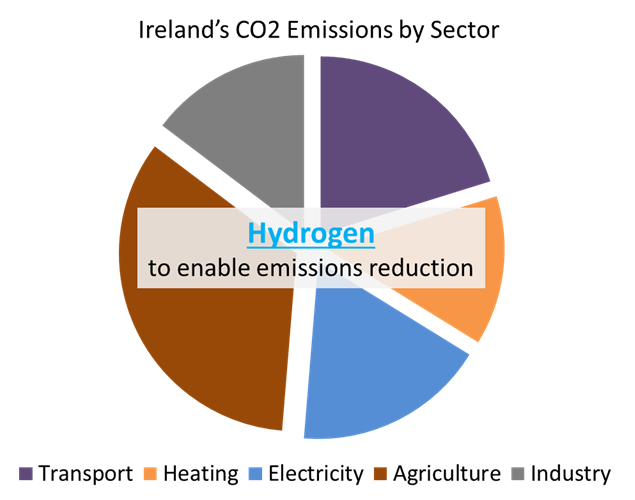
A report published this week by an industry led team supported by Dublin City University (DCU) and funded by SEAI (the Sustainable Energy Authority of Ireland) has identified Hydrogen as a key element in Ireland’s Energy future.
The report, led by Mullin Grid Consulting, identified the relative and combined impact and importance of a range of curtailment mitigation options on high renewable electricity systems in Ireland towards 2030 and 2040. The team developed a model for estimating curtailment in Ireland and used this model to investigate potential measures and options to mitigate curtailment in 2030 with 70% average renewable electricity. The model considered; reducing fossil base load, relieving operational constraints, additional interconnection capacity, energy storage, increased wind capacity factors, diversification of technologies (e.g. solar capacity) and demand side management.
Additional modelling looked at getting towards 100% renewable electricity and it identifies hydrogen technologies are key to enabling more renewable penetration by absorbing significant volumes (e.g. offshore wind electricity) of excess renewable power and converting it to hydrogen for use in the heat and transport sectors.
Model results were visualised using animated graphs, and the project outcomes and results have been widely disseminated across both policy and industry audiences.
The research will inform national policy, in particular the Climate Action Plan target of 70% renewable electricity by 2030, and notify industry towards seriously looking at integrating hydrogen in Ireland’s future energy system.
The report is available here: https://www.seai.ie/case-studies/mullan-grid/





